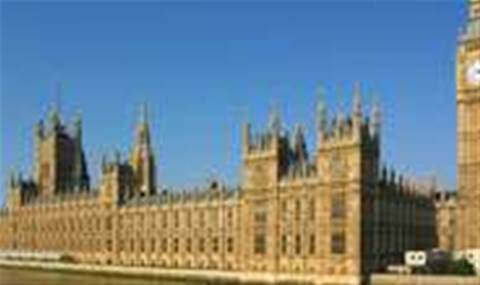The passing of the Digital Economy Bill in the Commons last night has unsurprisingly angered many groups, including internet service providers (ISPs), digital rights campaigners and political parties from all sides of the House.
The Bill was rushed through last night despite widespread complaints about a lack of scrutiny.It contains powers to force ISPs to disconnect citizens accused of illegal file sharing and reveal the names of those citizens if pressed, and also raises the possibility of copyright law being changed in future without proper scrutiny.
Also passed were provisions allowing a future secretary of state to use regulations to seek a court injunction to block any web site "which the court is satisfied has been, is being or is likely to be, used for, or in connection with, an activity that infringes copyright".
TalkTalk executive director Andrew Heaney wrote in a blog post that his company will refuse to disconnect any customers alleged to have shared copyrighted material, and will take the matter to court if necessary.
"TalkTalk will continue to battle against these oppressive proposals. Unless we are served with a court order, we will never surrender a customer's details to rights holders," he said.
"After the election we will resume highlighting the substantial dangers inherent in the proposals and that the hoped for benefits in legitimate sales will not materialise as file sharers will simply switch to other undetectable methods to get content for free."
Nicholas Lansman, secretary general of the Internet Service Providers' Association, said in a statement that the group is "extremely disappointed" by the way the Bill had been pushed through parliament and the measures it contained.
"The decision to accept the government amendment to Clause 18, which enables the secretary of state to make provisions about the granting of blocking injunctions by a court, is unacceptable given the lack of consultation on the impact," he said.
"Despite the inclusion of some safeguards that have improved the clauses on unlawful peer-to-peer file sharing, the case for the technical obligations contained in Clauses 11-17 is yet to be made."
Lansman also believes that the legislation is "disproportionate" and " unworkable", and will serve only to "preserve failing business models and prevent new innovative lawful models of distributing content online".
Jim Killock, executive director of the Open Rights Group, said that the legislation is an "utter disgrace", and demonstrates that politicians are "out of touch" with an entire generation. He warned that members of his organisation will not take the decision lying down.
"This is an attack on everyone's right to communicate, work and gain an education. There are now thousands of activists demanding answers from candidates, and who are willing to punish those who voted for this at the ballot box," he said.
The Pirate Party was equally contemptuous of the Bill's passing, calling it a "sombre day for Britain's digital future" and "fatally flawed and disturbingly draconian".
"Despite both opposition parties pledging to do their job by opposing the controversial aspects of the Bill, neither put up a significant fight. Members of the Pirate Party were left profoundly disappointed, although unsurprised, with the outcome," it said.
The party did commend Labour MP Tom Watson for his role in trying to table amendments and for voting against the Bill, calling his view, and those of other dissenters, a 'glimmer of hope amid the morass of apathy for citizens' rights".
Tony Ballard, a partner at law firm Harbottle & Lewis, argued that the government had "snuck" some of the more controversial aspects of the Bill back in at the last minute.
"There have been revisions made to the issues of changing copyright law that the government has brought back in that are quite unconstitutional as it would allow it to change the 'Remedies for Infringement' aspect of the Copyright, Designs and Patents Act without parliamentary scrutiny," he said.
"Which ever party takes office after the election will now have the power to make new copyright legislation and, as no specific measurers have been agreed upon, there is still the opportunity for interested parties to lobby the government."
Ballard added that, while changes will have to go through the 60-day super affirmative process, this will not allow for any proper scrutiny of the Bill.
Passing of Digital Economy Bill draws storm of protest
By
Dan Worth
on Apr 9, 2010 2:35PM

Got a news tip for our journalists? Share it with us anonymously here.
Partner Content
_(27).jpg&h=142&w=230&c=1&s=1)
Promoted Content
Why Renew IT Is Different: Where Science, AI and Sustainability Redefine IT Asset Disposition

How Expert Support Can Help Partners and SMBs Realize the Full Value of AI
.png&h=142&w=230&c=1&s=1)
How mandatory climate reporting is raising the bar for corporate leadership

Beyond the box: How Crayon Is Redefining Distribution for the Next Era

Promoted Content
Have ticket queues become your quiet business risk?







.jpg&w=100&c=1&s=0)








_(1).jpg&q=95&h=298&w=480&c=1&s=1)


